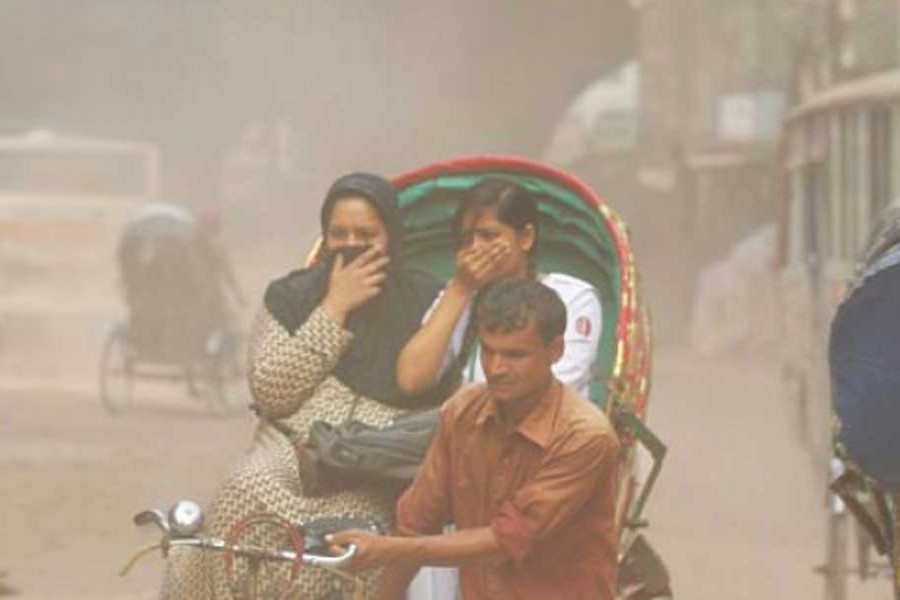Almost every aspect of urban Dhaka appears to have gone out of control. Over the last couple of decades, indexes on living conditions in the capital city have been on a decline. Against this backdrop, the Air Quality Index (AQI) related to Dhaka says, the city has ranked the 3rd worst in the month of October, the ranking being prepared by environment watchdog AirVisual, which monitors global air quality. The latest survey centring around Dhaka's state of air pollution at 11 AM on 24 October shows the city ranking 163rd from the bottom. Delhi has topped the list in reverse with a score of 393 in terms of air quality at the same time. Another South Asian capital -Kathmandu, ranked second scoring 170. Being at the 3rd place from the bottom is little solace because the operative phrase is 'from the bottom'.
Upon an in-depth look at the AirVisual round-up, the densely populated Dhaka has been dubbed one of the most polluted in the world. Its air quality has also been classified as 'unhealthy'. As days wear on, multi-faceted problems continue to plague the city contrasted by an infrastructural boom to ease some of those down the road. Meanwhile, environmental pollutions of assorted forms in the main cry out for mitigation with utmost priority in the interest of civic health and liveability.
As has been observed by environmental experts, there are a number of factors behind Dhaka's declining state of air quality. Apart from the exhaust fumes spewed out by motor vehicles, the pollutants include smoke belching out of the brick kiln and factory chimneys, and dust coming from construction work sites. As a general trend in Dhaka, its air quality falls during the dry months - from October to April. It improves during monsoon.
Having a healthy level of air quality has in the recent times emerged as an imperative for big cities. Besides developing and least developed countries, many highly industrialised countries are also found afflicted by air pollution. According to reports, air pollution caused 400,000 premature deaths in Europe in 2016. Although the menace of degrading air quality has long been a prime focus of environmental activists, it is the United States Environmental Protection Agency which has developed the Air Quality Index (AQI). The index is based on five criteria of pollutants regulated under the Clean Air Act -- ground-level ozone, particulate matter, carbon monoxide, sulphur dioxide and nitrogen dioxide. The AQI value over 300 represents hazardous air quality, and below 50 the air quality is good. The numerical value between 201 and 300 is classified greatly hazardous by AQI. From this point of view, Dhaka, with its score of 163, stands being a possible victim of mid-level risk and vulnerability vis-à-vis air pollution impact. So it's high time for a corrective intervention based on targeted approaches to bucking the trend and coming out on the other side - safe from hazards.


